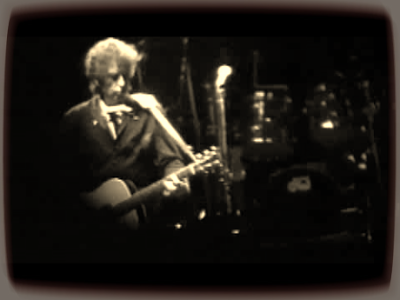
Enkele hoogtepunten uit het optreden van The Allman Brothers in het legendarische programma "Ohne Filter" op 5 Juli 1991.Vier originele leden van de band zijn van de partij, Gregg Allman (vocalen en orgel),Dicky Betts (gitaar),Butch Trucks (drums)Jai Johanny "Jaimoe" Johanson (drums), aangevuld met de fantastische Warren Haynes(Gitaar en zang) en Allen Woody(bass)De laatste twee zouden we later weer tegen komen in die andere prachtige band Gov,t Mule
Stateboro Blues
Statesboro Blues" is een song van Blind Willie McTell die refereert aan de stad Statesboro in Georgia. Door veel artiesten gecoverd maar deze versie kwam op plaats 9 van het muziekblad ,,Rolling Stone,, op de lijst van ,,100 Greatest Guitar Songs of All Time ,,
De band werd in 1969 opgericht door Duane Allman (gitaar), Gregg Allman (vocalen en orgel), Dicke Betts (gitaar), Berry Oakley (basgitaar), Butch Trucks (drums) en Jai Johanny "Jaimoe" Johanson (drums).
Kind Of Bird
Geschreven door Warren Haynes en Dickey Betts.Beide liefhebbers van de muziek van Charlie Parker (nickname,,Bird,,)
In maart 1971 speelde de band enkele malen in de Fillmore East. Deze optredens zijn opgenomen en te horen op hun derde album, de dubbel-LP At Filmore East. Het album werd een doorslaand succes en groeide uit tot een klassieker, die wordt beschouwd als een van de beste live- en bluesrock-albums allertijden.
Jessica
Dickey Betts jongste dochter heet Jessica,schreef het nummer toen hij haar op eenjarige leeftijd door de kamer zag kruipen
Op 29 oktober 1971, niet lang nadat At Filmore East de gouden status had verworven, kwam Duane Allman in een motorongeluk om het leven. Ondanks het verlies van de leadman besloot de band toch door te gaan en de opnames van het vierde album af te maken. Dickey Betts nam de rol van Duane over op Eat a Peach. Na enkele optredens als een vijfkoppige band werd er besloten weer een zesde lid en een nieuw muzikant toe te voegen aan de band. Het werd pianist Chuck Leavell.
Whippin Post
Whipping Post" is gesschreven door Gregg Allman,de originele versie staat op het debuutalbum The Allman Brothers Band.Maar de mooiste versie staat op het dubbel album live At Fillmore East,een versie van 23 minuten (een hele plaatkant)
In 1976 viel de band uit elkaar, toen Gregg Allman werd opgepakt voor meerdere drugs-gerelateerde misdrijven en getuigde tegen een vriend en medewerker van de band. Leavell, Johanson en Williams vormden samen de band Sea Level, en Betts ging verder met zijn solo-carrière. Capricorn bracht hierna enkele albums uit met nog niet eerder uitgebracht materiaal en live-opnames, waaronder Wipe the Windows, Check the Oil, Dollar Gas.
Ramblin Man
Geschreven door Dickey Betts, komt van het album Brothers and Sisters en gebazeerd op een nummer van Hank Williams uit 1951.Het was hun eerste en enige top 10 single
(nr 2 in de Billboard Hot 100 chart)
Pas in 1989 kwam de groep weer bij elkaar, mede door het succes van een uit vier cd's bestaande compilatiealbum, uitgebracht door PolyGram. De band was niet compleet: Leavell was op tournee met de Rolling Stones en Williams was in 1983 gestorven aan kanker. De band werd aangevuld met gitarist Warren Haynes en bassist Allen Woody. De groep sloot een contract met Epic Records en bracht in 1990 het album Seven Turns uit, dat zeer goed werd ontvangen bij critici en hun bestverkopende album in jaren werd.

Howard Duane Allman (November 20, 1946 – October 29, 1971)
Overleden op October 1971 ten gevolge van een motorongeluk.

Raymond Berry Oakley III (April 4, 1948 – November 11, 1972
Ook Oakley kwam om bij een motor ongeluk,een jaar na het fatale ongeval van Douane.

Douglas Allen Woody (October 3, 1955 – August 26, 2000)
Legendarisch Live: The Allman Brothers Den Haag 22Sept 1980
http://cgi.omroep.nl/cgi-bin/streams?/radio2/kro/legendarischlive/20070302-23.wma













.jpg)























